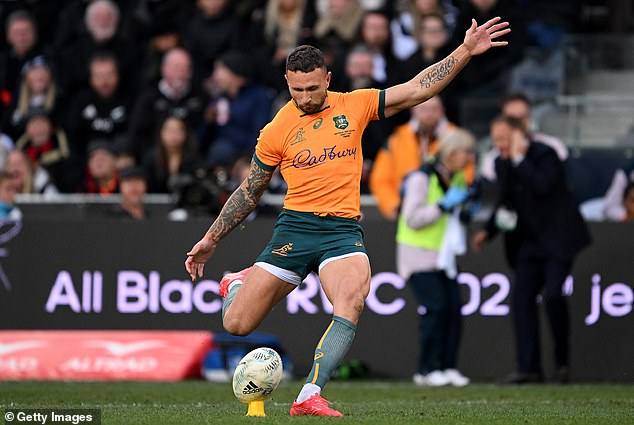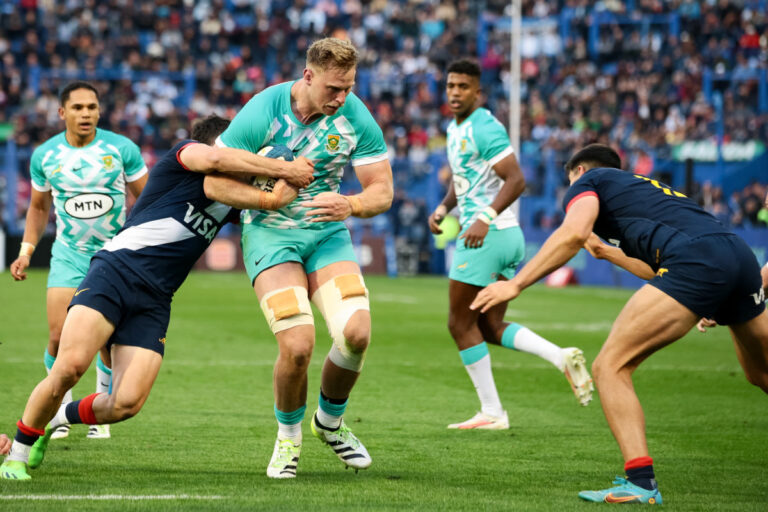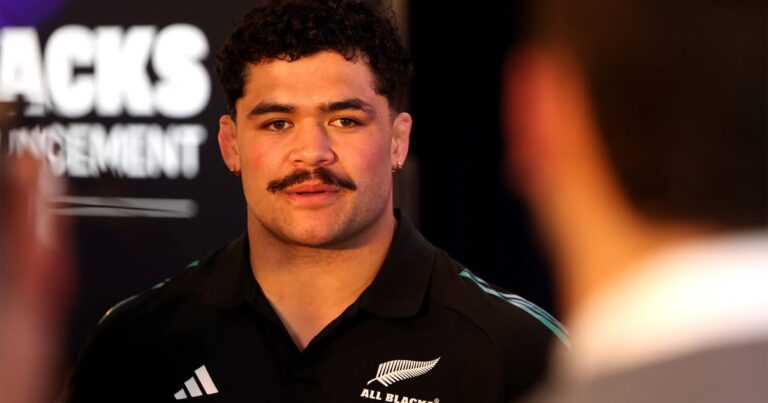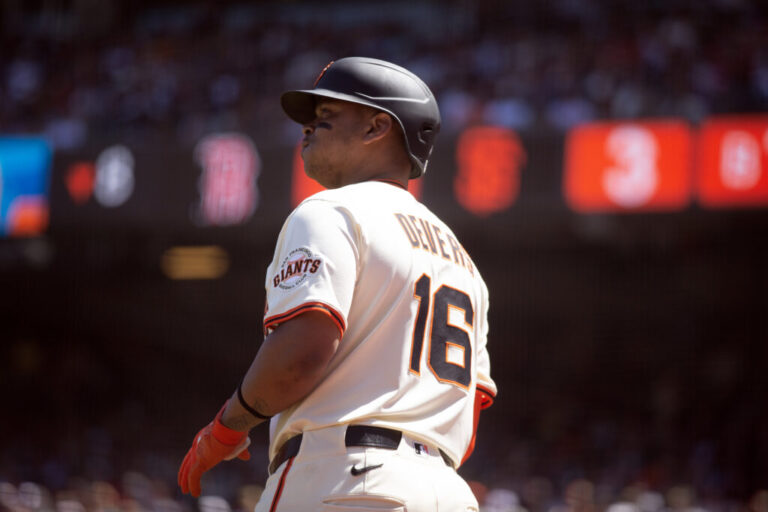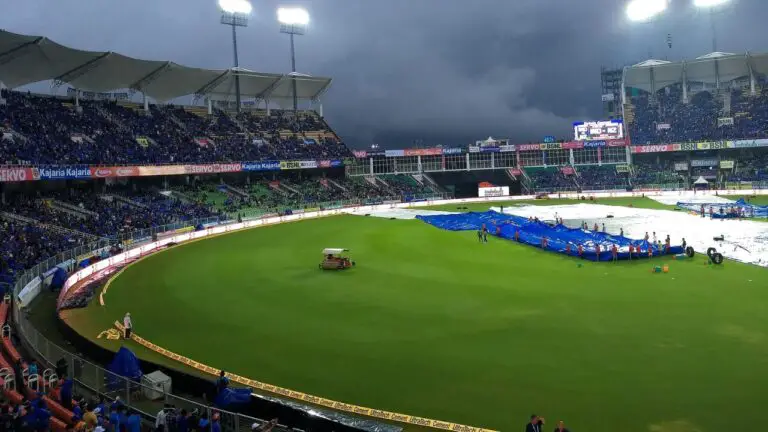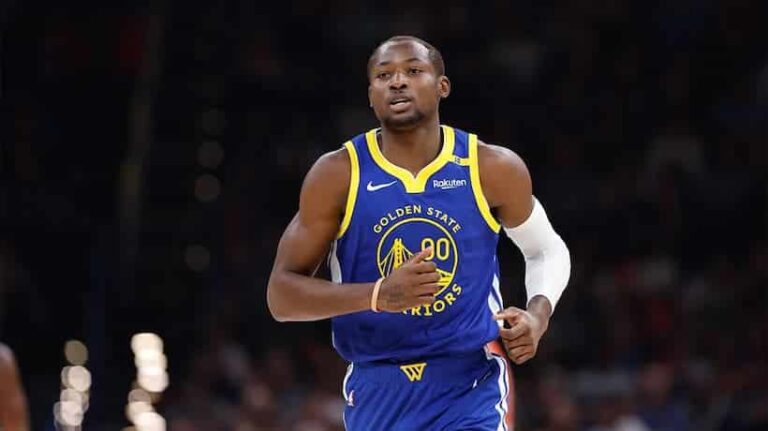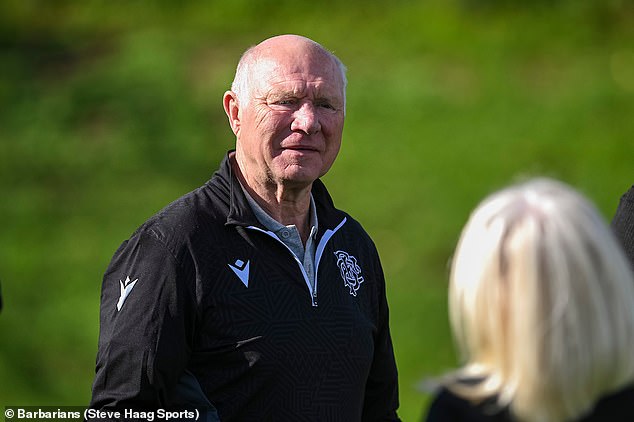
As he sat in the foyer of a luxurious, five-star hotel in Cape Town’s Camps Bay on Wednesday morning, John Spencer had to break bad news to some of world rugby’s biggest names.
‘There is a big storm coming here. Table Mountain is closed. We’ve had a couple of players who wanted to go hand gliding off there,’ Spencer, a Barbarians and British & Irish Lions icon, told Mail Sport from South Africa.
‘The winery tour is off too and so is the boat trip – that would have been highly dangerous with the waves that are coming into the shore here.’
So much for best-laid plans.
While the best of the best from Britain and Ireland are with the Lions in Australia and the four home nations are also on their way to tours in foreign climes, the Barbarians are in South Africa for a one-off match against the double world champion Springboks.
All Blacks Sam Cane, Mark Telea and Shannon Frizell, former Ireland internationals Peter O’Mahony and Cian Healy and England’s David Ribbans and Joe Marchant are all part of the legendary touring side’s party.

Lions and Barbarians legend John Spencer believes rugby must retain traditional tours

The Barbarians are in South Africa this week for a game with the double world champions
Robbie Deans is coach, assisted by another New Zealand great in Sam Whitelock.
And while there might not have been any hand gliding or wine tours, the honour of pulling on the famous black and white shirt remains as big as ever.
In an increasingly-packed rugby schedule, the Lions and Barbarians find themselves being squeezed and squeezed again.
The long, traditional tours that have been staples of international rugby for so long, are now coming under threat. Spencer, now 77, admits as much.
He has represented the Lions and Barbarians as both a player and administrator.
‘We can’t allow traditional touring to die,’ Spencer, now Barbarians tour manager, says, matter-of-factly.
‘We are a rebel society, the Barbarians. We make rules on our tours and don’t abide by any of them!
‘We don’t want to lose that. It does feel like we’re being squeezed and it can be difficult. You do get clubs who won’t release their players, mainly out of fear of injury.
‘But what would you rather watch? The Lions or the Barbarians or another club game?
‘It is more difficult now, but that’s part of the challenge. We embrace that.’

New Zealand great Sam Whitelock (left) and former Ireland prop Cian Healy in South Africa

The Barbarians, like the Lions, are one of rugby’s most famous and historic sides
After retiring as a player, two-time World Cup winner Whitelock is coaching with the Barbarians in South Africa this week. ‘It’s a very special club,’ he says.
‘It is one of the coolest things in sport. It has an important place in rugby. It needs to be a priority in the game.’
The Barbarians, funded by Steven Berrick, is an invitational side founded in 1890. The Lions, now a huge commercial entity, were established two years before that.
But with a new Nations Championship at international level coming in biennially from 2026 and talk of R360 – a proposed rebel league – upsetting the club game’s established order, it is clear there is change afoot in rugby.
Asked if the bad weather meant more time for Barbarians training, Spencer said with a smile: ‘I wouldn’t go that far! We’ve had two sessions of 50 minutes already. The boys are being very generous to us!
‘It’s been a fantastic privilege for me to be involved so heavily in both the Lions and Barbarians. At my age now, I’m fortunate to have such great memories.
‘The Barbarians and Lions are similar institutions – neither has a clubhouse nor a pitch. They rely on invitations and you play where you’re accepted to play.
‘Both are teams full of different nations. Rugby creates memories, friendships and enjoyment. Those are the core values we try and impress on our players. In our first team meeting this week, we all had to introduce ourselves.
‘Sam Whitelock was sitting quietly at the back. He introduced himself as the water boy. It takes a certain humility to do that.
‘Like the Lions, these tours are an opportunity to form lifelong friendships. Being a Barbarian is a way of life. We play for enjoyment and allow the players to express themselves on the field. People think we tell our players not to kick the ball and to play expansively.
‘We never do that. We just let the players put the jersey on and trust them to play, relying on each other’s ability. At least we don’t have the world championships of box kicking in our matches. They’re never boring.

The Lions are currently in Australia, but even they are being squeezed by a packed calendar

Spencer believes the Lions and Barbarians have ‘a very important role to play in modern rugby’ (Lions star Henry Pollock pictured)
‘Players come to me regularly and say the Barbarians is the greatest experience of their rugby lives. This week I’ve been talking to players like Sam Cane, Peter and Cian.
‘They’ve said they’ve had their interest in rugby rejuvenated and been reminded of the reason why they first took up the game.
‘That’s incredibly special.’
Those invited to play for the Barbarians are paid well for their time. But most would do it for free, such is the honour of receiving the call. The same applies for the Lions.
Spencer was Lions tour manager on the 2017 tour of New Zealand when the Test series was shared. Then, he was on the opposite side to Whitelock and Cane.
Now, they are part of the Barbarians brotherhood. And that is the beauty of rugby, a sport like no other.
While the game moves forward at pace and monetary realities bite, it is clear those in rugby’s corridors of power have big decisions to make.
But it is also equally obvious the game would be worse off without the Lions or the Barbarians. Rugby must continue to balance the new with the old.
Spencer has led the Barbarians in charity work with the Atlas Foundation in Cape Town this week. Saturday’s game with South Africa is their opposition’s first of the season.
‘When the players here in South Africa this week see each other in future years, they’ll only have to nod at each other and they’ll remember playing together for the Barbarians,’ Spencer says.
‘There is a strength in the handshake of Barbarians players that will last a lifetime. I have great memories of the Lions and the Barbarians.
‘But I also have sad ones too as, unfortunately, a lot of my colleagues have now sadly passed away like Ian ‘Mighty Mouse’ McLauchlan.
‘The Barbarians, don’t forget, also represent the community game. Both us and the Lions have a very important role to play in modern rugby.’
